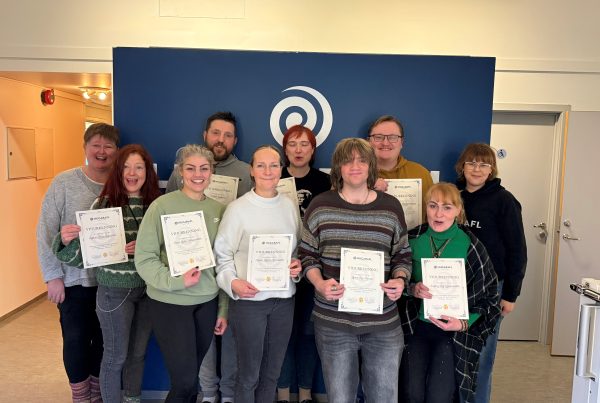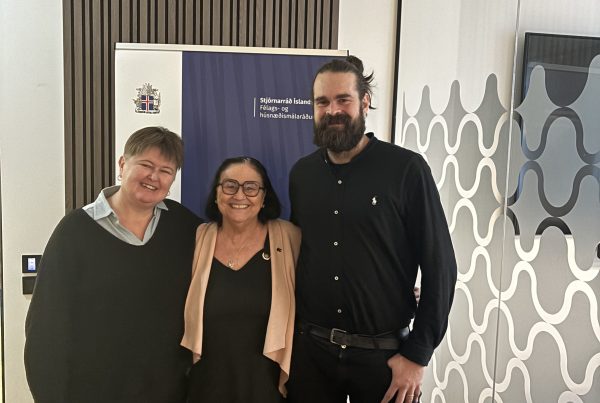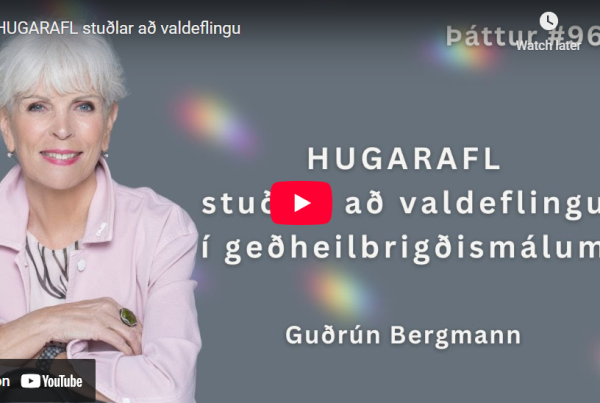Þessi grein er skrifuð á ensku.
Our project Empowering Futures, funded by Erasmus+, is approaching its closing.
Between March and June 2025, Hugarafl and its partner organizations from Italy, Sweden, Finland, and The Netherlands carried out focus groups and individual interviews with adults recovering from mental health challenges. These activities explored our members’ real-life experiences with job reintegration and identified the skills, barriers, and supports needed for successful vocational rehabilitation.
Focus groups: shared experiences and common themes
In the focus groups, participants from diverse backgrounds and recovery stages shared their experiences of returning to work. Key themes included:
Motivation to work – Most participants wanted structure, purpose, and the self-worth that comes with employment.
Barriers – Common obstacles included anxiety, fatigue, low self-confidence, stigma, and rigid workplace expectations.
Workplace preferences – Quiet, structured environments, small teams or independent work, and flexible hours were consistently preferred.
The focus groups confirmed that successful job reintegration requires supportive environments and gradual re-entry into work.
Individual assessments: skills, barriers, and goals
The individual employability assessments gave deeper, personalized insights:
Skills and strengths – Participants brought diverse abilities, from logistics, caregiving, and kitchen work to administration, peer support, and creative arts. Soft skills like empathy, patience, and communication were also strong assets.
Training needs – Many wanted short, practical training (e.g., peer support certification, customer service refreshers, digital skills, sustainability courses) rather than long, formal education.
Barriers to employment – Anxiety, burnout, physical health issues, and confidence gaps were common. Some also faced practical challenges such as benefit system constraints or transportation costs.
Support systems – Professional support from job coaches, therapists, and peer groups (e.g., Fountain Houses, Hugarafl, HerstelTalent, Stjoer) was essential for maintaining stability during job transitions.
Future aspirations – Short-term goals focused on stability, confidence, and part-time or supported roles. Long-term ambitions ranged from steady jobs in care or administration to entrepreneurial projects like cafés or creative initiatives.
How these findings will shape vocational rehabilitation
The combination of focus group discussions and individual assessments will directly inform the development of a comprehensive educational pathway for vocational rehabilitation, in our next project.
Key priorities include:
- Flexible, supported job placements that allow gradual reintegration.
- Employer education to reduce stigma and promote mental health–friendly workplaces.
- Tailored training programs aligned with participants’ existing skills and real-world job needs.
- Ongoing mentorship and peer support to build confidence and resilience.
The findings show something powerful: across all partner organizations, participants bring skills, motivation, and a deep desire to contribute. What they need is not a new identity, but the right support, understanding, and opportunities to put their strengths to work. By listening to their voices and shaping programs around their real experiences, we can build vocational rehabilitation pathways that don’t just lead back to work—but lead toward confidence, dignity, and a renewed sense of purpose.
Article by Dumitrița Simion









